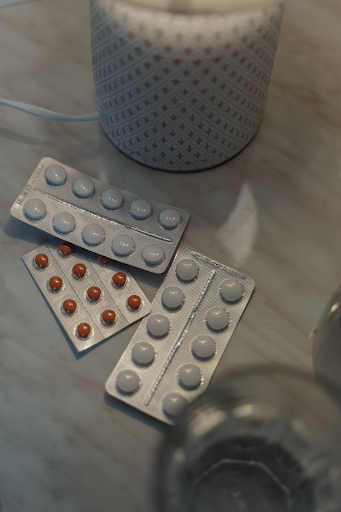9 Depression Self-Help Tools Available to You
Depression affects millions of people, many of which sit idle on the sidelines in terms of seeking treatment. It is a serious condition that requires professional treatment to restore a quality life. In this post, we provide you with nine depression self-help tools available to you.
1.Try an online self-help guide
There are many ways to help yourself feel better when you’re feeling depressed. One of the most convenient is to use an online self-help guide.
The internet is full of resources, including websites and blogs, that offer information on depression and other mental health issues. These are an excellent way to get started on your journey towards recovery, especially if you’re new to self-help or aren’t sure where to begin. Aside from that, you don't have to spend hundreds or thousands of dollars on a therapist or psychiatrist when you can get the same results for free with an online self-help guide. In fact, there are people who find that they can learn more about their depression and find solutions to their problems by reading a self-help book than they ever could in a therapy session with a professional.
More importantly, there's no need to wait for an appointment with your therapist or psychiatrist because you can read an online self-help guide at your own pace, whenever it's most convenient for you. And since most online guides are written in plain English rather than medical jargon, they're easy to understand even if you're not familiar with medical terminology or jargon.
2. Start a journaling routine
Journaling can be a great way to help you understand your depression. It may also be helpful in determining what reasons and situations trigger your depressive episodes.
Journaling can also help you come up with possible solutions and coping strategies for your depression. As a matter of fact, it could also help you identify certain patterns or triggers that lead to depression, which can then be avoided or changed.
In addition, journaling can help you develop a better sense of self-awareness and understanding of yourself as well as your emotions and behaviors. This will also help you become more aware of the things that may trigger feelings of depression and anxiety so that they can be avoided or dealt with more effectively.
You might even find that writing down what has happened during your day helps you sleep better at night because it allows you to process stressful situations without having to think about them right away when they happen.
3. Make your own self-care list
We all know that taking care of yourself is important, but sometimes it’s hard to know where to start. However, you really need to start taking care of yourself if you really want to get better. You can do this by creating your own self-care list.
Self-care list is basically an inventory of all the things that help you feel good when you're going through a depressive episode. It can include anything from simple tasks like taking a bath or reading a book to more complex acts like exercising or talking with someone about how they're doing in their life.
The key thing about making a self-care list is that it gives you control over what helps you feel better during times when depression has taken over your life. Even if some of the items seem silly (like watching Netflix), remember that they work because they make YOU feel better—not because anyone else thinks they should be on the list!
4. Get your nutrients
It’s one of the most important things you can do for yourself when you have depression. Getting your nutrients means eating healthy foods that are rich in vitamins and minerals, and avoiding those that are not.
When you eat a balanced diet full of nutritious foods, your body has everything it needs to run smoothly. Your brain will be able to function properly, which helps with depression and anxiety disorders.
A balanced diet also helps reduce stress levels and improve sleep quality, which can help with depression symptoms as well. This is because sleeping well helps regulate hormones in your body and helps reduce inflammation throughout your system. More importantly, eating well also reduces inflammation in your body, which improves overall health and reduces stress levels as well.
5. Focus on routine
The key to good mental health is having a routine. It helps us stay organized and ensures that we are doing the things that need to be done, when they need to be done. This can be hard for people with depression because they may feel as though there isn't enough time in the day to get everything done. But if you can stick with it, it will help improve your mood, which will make it easier for you to stick with your daily routine.
With this, if you're having trouble sticking with a routine because you don't know what to do first, try starting small by doing one thing at a time until you feel like you can handle more tasks at once. You can also use this time as an opportunity for self-care or relaxation time after completing all of your tasks!
6. Create a peace corner
If you are dealing with depression, you may find it difficult to create this space for yourself. You may have forgotten how enjoyable it can be or feel like there is no time for such things when life seems so busy and overwhelming. However, creating a peace corner can help you feel better about yourself and reduce some of the stress that comes with living with depressive illness.
You can do this by choosing an area where no one else will disturb you while you relax and unwind. This might be a small room or just part of another room that has fewer people coming through it on a daily basis than other areas in your home. Alternatively, if there are no rooms available that fit these criteria, consider using an outdoor space such as a patio or balcony where you can sit quietly without being interrupted by others who are not aware of your condition.
7. Talk about it
It can help you feel less alone, and it can make it easier to get support from others who are also going through similar things. So, if you're struggling with depression or just want to understand what someone else is going through, talking about it can help bring you closer together in your shared experience.
Talking about your feelings and experiences can also be a powerful way to make sense of what's happening in your life, which can be especially helpful if you're struggling with depression. When we talk openly about our experiences, we can take control over them instead of feeling like they have control over us. It may sound counterintuitive at first, but when we speak up about our problems instead of being silent about them, we often feel better—and that's true even when the problem seems big!
It's also important for people who aren't experiencing depression themselves to learn how to listen well and not make assumptions about what someone else needs from them. So whether you're talking with someone who has depression or just want more information on how best to approach someone who does—remember: everyone has different needs!
8. Spend time outdoors
First, it's important to remember that spending time in nature has been proven to have a direct impact on your mood and mental health. One reason for this may be because exposure to nature helps us realize that we are part of something bigger than ourselves, which can help us understand our place in the world. When we're feeling down or depressed, it can be hard to see how our lives fit into a larger picture. So, being reminded that we are all part of something bigger helps us feel more connected and less alone.
Another way spending time outdoors can help you with depression is by helping you get outside and breathe fresh air—something that most people don't do enough of while they're indoors all day long! Getting outside will give you some much-needed vitamin D from sunshine (which is helpful for preventing seasonal affective disorder), but beyond this it will also give you a chance to fully take in your surroundings.
9. Listen to a podcast
Podcasts are easy to listen to while doing other things—like driving or running errands—and they can take your mind off your depression for even just a few minutes at a time. This helps reduce rumination about negative thoughts, which can make depression worse.
This is because podcasts are interesting and engaging enough that they keep your mind occupied without making you feel like you're working too hard at keeping up with the story or trying too hard to understand what's going on in the world around you (which is important if depression has left you feeling isolated).
More importantly, podcasts give you access to experts who can help guide you through your struggles with depression and offer advice on how best to manage it moving forward.
In the end, only you can make the right decisions for your own condition. That said, with a little help from the internet and these depression self-help tools, you can get on the road to recovery sooner than you might think.
For more helpful and informative insights, visit here.





